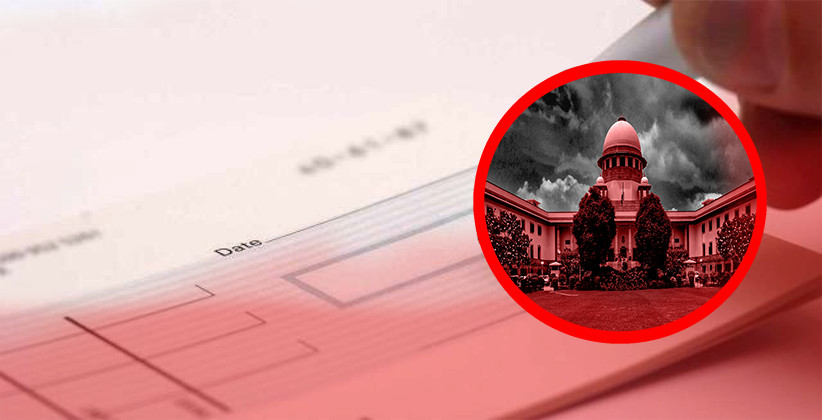The Supreme Court has on June 08, 2020, sought the response of the Attorney General KK Venugopal in an application seeking service of demand notice in "dishonor of cheque" cases through Email and WhatsApp under section 138 of the Negotiable Instruments Act, 1881.
The Supreme Court wanted to know the viability of alternative means of service and ways to ensure that the said service through these alternative modes is not misused.
The issue had come up through the interlocutory application filed in the suo moto case taken by the SC extending the limitation period for filing of cases in the wake of COVID-19.
CJI S. A. Bobde had noted that,
We have been told by some experts that people try to misuse service through email and WhatsApp. So, AG may reply as to how can this be done without abusing such liberties. Let him tell us what his advice is, so it can be considered. We are not experts on this.
When Advocate Bintu Thomas submitted that the extension of limitation must also be made applicable to re-filings, CJI had clarified that,
Whether filings or re-filing, the same principles will apply. If the time expires during the period of lockdown, the same principle will apply. Whenever we pass that order, well say so.
Earlier, on March 23, 2020, a Bench headed by CJI had passed a general order extending Limitation with effect from March 15, 2020, invoking special powers under Supreme Court Article 142 of the Constitution of India.
The March 23 order had been passed to reduce physical filings in courts and tribunals across the countries during the COVID-19 pandemic.
The Supreme Court had ordered,
To obviate such difficulties and to ensure that lawyers/litigants do not have to come physically to file such proceedings in respective Courts/Tribunals across the country including this Court, it is hereby ordered that a period of limitation in all such proceedings, irrespective of the limitation prescribed under the general law or Special Laws whether condonable or not shall stand extended w.e.f. 15th March 2020 tillfurther order/s to be passed by this Court in present proceedings.
The bench had further stated that the order will be binding on all courts/tribunals as per Article 141. Article 141 makes Law declared by the Supreme Court to be binding on all the Courts.








